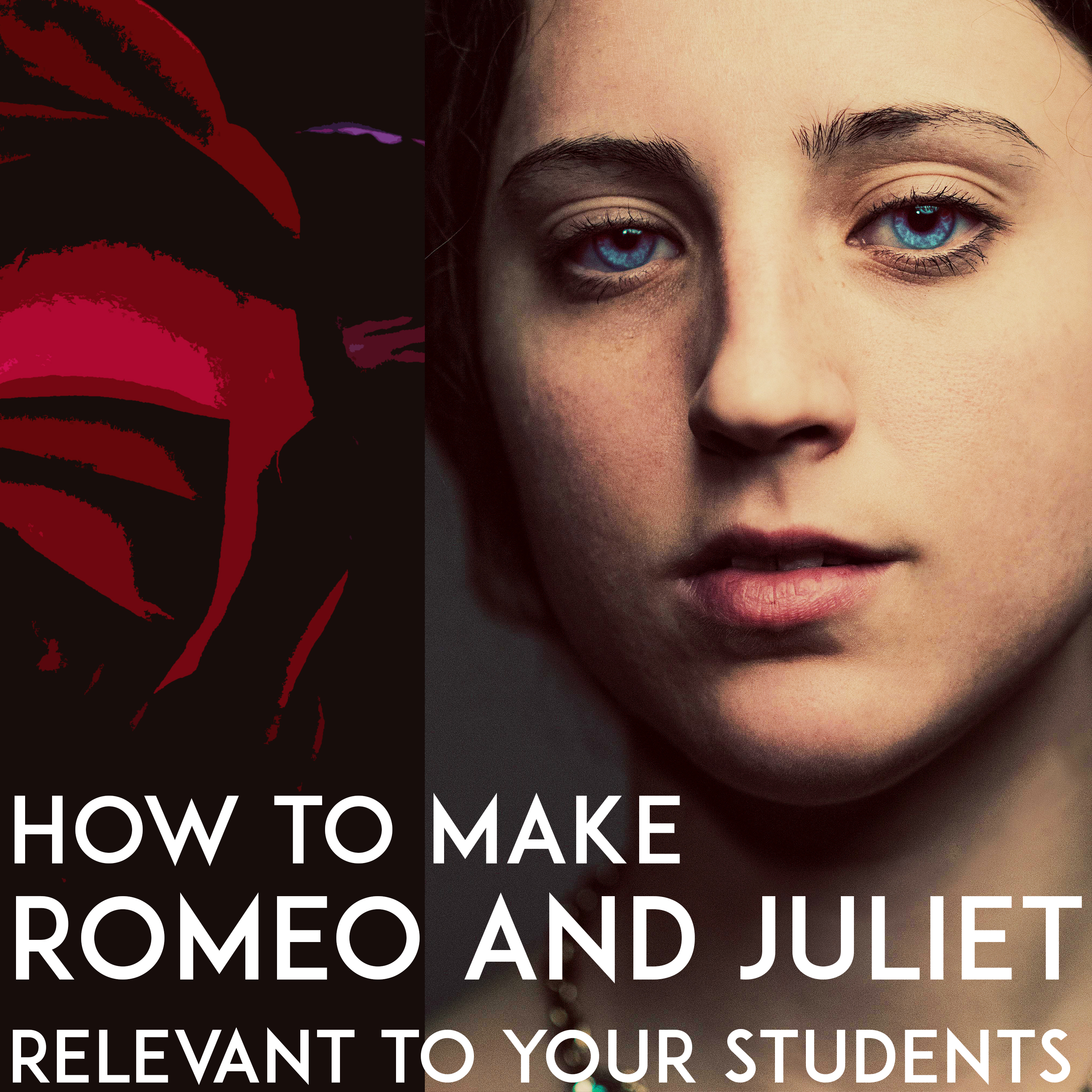How to Teach Romeo and Juliet to 9th Graders and Make it Relevant

For most students, Romeo and Juliet is their first experience reading a Shakespeare play, and so it can be a make-it-or-break-it situation. The pressure is on—not only are you expected to get them excited about reading the 500-year-old words in this play, but their time spent with the two tragic teenagers will set the tone for their experience with other Shakespeare plays during their high school career.
One of the best ways to insure that your Romeo and Juliet unit is a success with your classes is to make sure that you make the play relevant to their lives. Here are 5 ways to connect Romeo and Juliet to your students’ worlds.
Consider the live-fast-die-young culture. Teenagers today are all-too-familiar with the idea of YOLO (you only live once) and they get plenty of messages about how cool it is to live hard and die young from pop music and other popular culture. While the Friar might believe that long and moderate love is better than passionate love that is short-lived, Juliet and Romeo and the other young characters in the play all prefer to love and live violently. Getting students to truly question why and when they get the message that it’s better to burn out than it is to rust is important for their own lives and is a great way to connect them to the play.
Give students historical context on love, death, and revenge. It might seem paradoxical to study poetry, non-fiction, or paintings from hundreds of years ago in order to make Shakespeare’s work more relevant to today, but when students look at the norms and expectations that were commonly known in the period, they will gain a deeper understanding of their own place and time and they will better relate to the issues of the classic play. Spending some time examining poems, non-fiction, and visual art from the period is a great way for students to feel more connection to their peers from 500 years ago.
Examine contemporary street life and gang culture. The brawl that opens Act 1 begins, as the Prince says, with an “airy word.” And in many ways, similarly baseless feuds continue on the streets today. It’s also key for students to see that, as Shakespeare portrays those who occupy the streets of Verona, youth who are involved in street violence are not simple, one-dimensional gangsters. When students spend any time examining gang culture and street violence and retribution, they will quickly see how relevant Shakespeare’s portrayal of gangs and gang members is to the issues of their own time.
Read some contemporary poetry. Great literature deals with themes that are timeless, and when students can compare the same issue or question in more than one piece of literature, they get an even deeper sense of the problems and issues that face people of all times. Reading contemporary poetry alongside of Shakespeare also helps them to understand that writing in verse is not something that is reserved for white men who were born in England and died a long time ago. I especially like pairing my unit on Romeo and Juliet with poetry about family dynamics, but contemporary love poetry works great as well.
Get students writing about their own lives. Ultimately, my biggest goal in reading any piece of literature in school is to get my classes to question their own beliefs and assumptions. Shakespeare wrote about love, family dynamics, death, violence, revenge, parenting, teenage rebellion, street life, and about what happens when we rush through decisions without slowing down to think things through. These are all important issues in our students’ lives, and they are topics which warrant reflection and thought. Getting your classes to write frequently on these topics in their own experience is a great way to connect them to the classic play.
Often, I wish that the story of the tragic deaths of the two teenagers wasn’t so relevant to my students’ lives, but the fact is that kids today deal with many of the same issues that kids dealt with hundreds of years ago. They might not have such tragic outcomes, but that doesn’t mean that they don’t warrant serious discussion and examination. The more we get students to understand how and why any literature is relevant to their own lives, the more we can get them to work to develop their own ideas and opinions, and the more resilient they will be when they go out into that big world.
Looking for a unit that includes all of the above and as well as close reading questions, quizzes, and answer keys for every scene of the play? Check out my complete unit on Romeo and Juliet.
